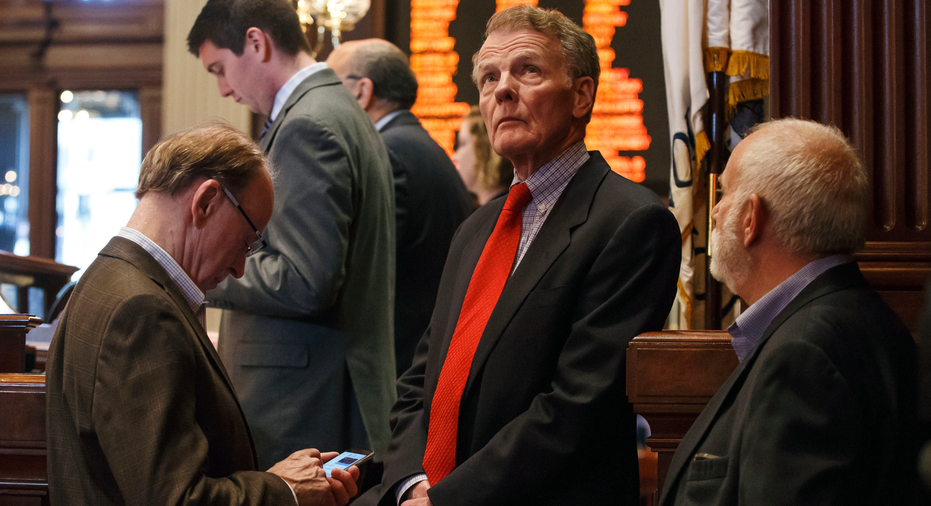Lawmakers return to Capitol after voting to raise taxes

SPRINGFIELD, Ill. – Illinois' financial outlook received a boost from a credit-rating house Monday after a dramatic vote to raise the income tax rate by 32 percent.
Fitch Ratings issued a statement noting "concrete progress on reaching an agreement to break the two-yearlong budget impasse" after the House vote Sunday night. Fitch's announcement came despite a promise from Gov. Bruce Rauner to veto the House measure. It was approved 72-45, receiving one more vote than necessary to override a veto.
Illinois has been without an annual budget for two years, the longest of any state in at least 80 years. The state is carrying a $6.2 billion annual deficit and $14.7 billion in overdue bills. The state has crept along on spending ordered by courts, but a federal judge last week ordered that the state pay nearly $300 million more a month to managed-care Medicaid billers.
The House also approved a $36 billion spending bill. Both measures move to the Senate for concurrence. But it was unclear whether the Senate had the 36 three-fifths majority necessary Monday to send them to the governor. Legislative leaders are scheduled to meet again this afternoon to continue budget talks.
The other two major investment houses, Moody's Investors Service and Standard & Poor's, were closed Monday for the Independence Day holiday. All three houses have threatened to downgrade Illinois to "junk" status without swift action on a budget, a move that would signal to investors that buying Illinois debt would be speculative.
Fitch rated Illinois' creditworthiness as "BBB" in February. There is one more level, "BBB-minus," before falling into "junk" status.
The tax bill approved Sunday would increase the personal income tax rate from 3.75 percent to 4.95 percent. Corporations would pay 7 percent instead of 5.25 percent.
"Temporary or partial measures, or a failure to enact a budget within the context of this session, would result in a downgrade," the Fitch statement warned. With the order on Medicaid vendors and other legal challengers to the state's bill-paying decisions, Fitch said, "The state risks losing full control of its budgetary decisions, which would be inconsistent with the current rating."
___
Contact Political Writer John O'Connor at https://twitter.com/apoconnor . His work can be found at https://apnews.com/search/john%20o'connor



















